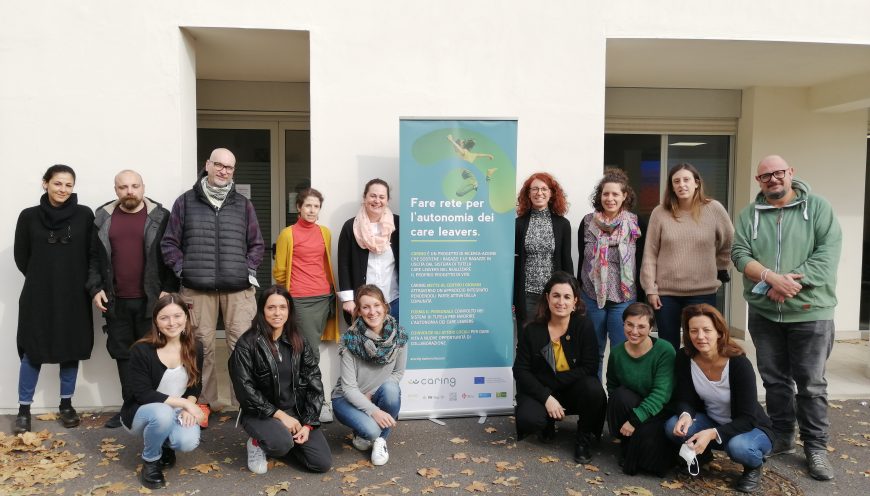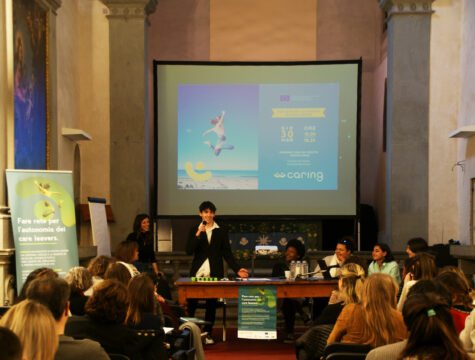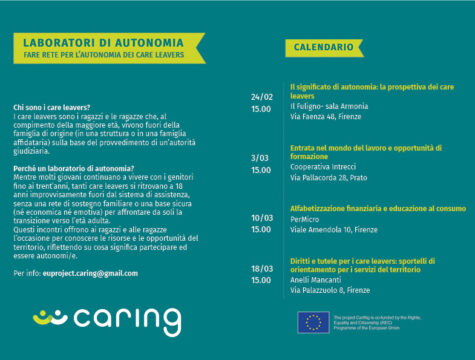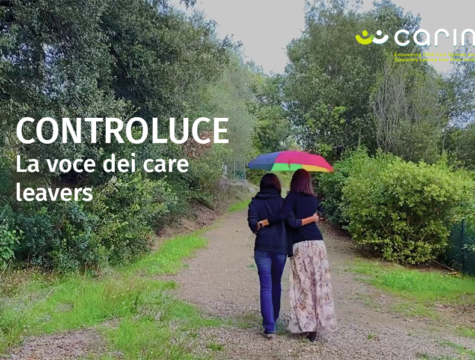In November, SOS Villaggi dei Bambini carried out the first phase of the training for foster care professionals “Preparing for Autonomy” in the two cities of Florence and Prato, whose municipalities are partners in the CarING project. The training was attended by a total of 34 operators, including social workers and educators from the territory, intentionally selected from multidisciplinary contexts and services with different possibilities of interaction with children and young people in care.
The “Preparing for Autonomy” training course is designed to promote the awareness and competence of operators on the issue of leaving care, in order to better support boys and girls and adequately prepare them for an independent life. In the host country, in fact, coming of age means ending the protection process and therefore having to fend for oneself in finding a house, a job; in short, in building one’s future. For this reason, one of the topics highlighted in the SOS Children’s Villages training course is networking in all areas relevant to supporting and accompanying people on their way to independence: rights and legal issues, work and money, housing and practical skills, health and well-being, education and personal development, family and friends.
The course is divided into two modules – one lasting two and a half days, the second two days – and consists of short face-to-face sessions by trainers, supported group work, individual work and feedback analysis. Its methodology is, in fact, strongly experiential and interactive: participants are stimulated to interact, use their experiences, acquire up-to-date information and skills with a critical approach aimed at integrating the acquired knowledge into their work. This methodology is also functional to the articulation of the training in its four pillars; the promotion and protection of the rights of children and young people, the relational approach, the right to participation and listening, the inter-sectoral work.
In this first phase of the training, therefore, participants had the opportunity to acquire knowledge and tools useful to support care leavers in a successful transition to independent living through a participatory approach centred on the rights of children and adolescents. They were also encouraged to critically reflect on their work with care leavers, to share their experiences by collaborating in activities and to develop resources and contextualised knowledge according to the local situation.
The training will end in January, when the second phase will take place, in which two young people with experience in out-of-home care will participate as co-trainers. In the framework of the training, the young experts will represent the peer group and the whole community of care leavers, sharing and talking about collective experiences: for the care leavers this will be an opportunity for empowerment, while for the training participants the interaction with the young people will certainly be very intense and have a powerful emotional impact.
<a style=”color: #ffffff;”>Discover more on the activites of th project CarINg</a>
<a style=”color: #ffffff;”>Read more on the objectives of the project CaINg</a>




